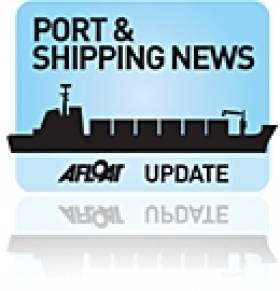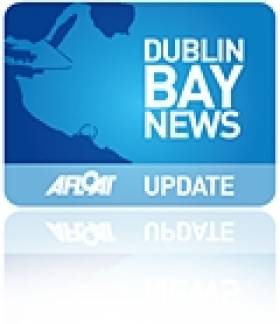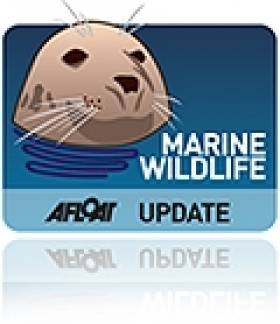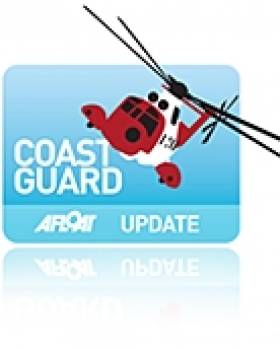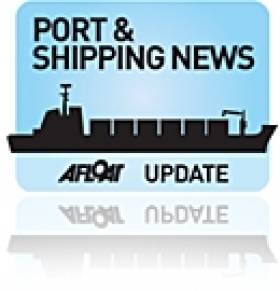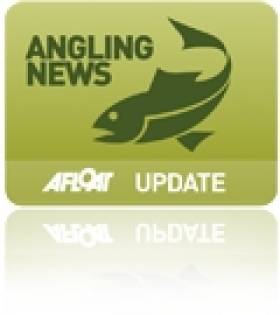Displaying items by tag: pollution
Health Minister Speaks Out Against Fingal Sewerage 'Super Plant'
#NEWS UPDATE - The Minister for Health has raised concerns over a new water treatment 'super plant' planned for Fingal, amid fears that a malfunction could see huge amounts of raw sewerage pumped into the Irish Sea.
As reported in The Irish Times, Dr James Reilly echoed worries expressed by his north Dublin constituents and members of community group Reclaim Fingal Alliance, noting that the people of Skerries, Loughshinny and Rush are particularly "worried about the effects of the outfall pipe in their area".
The minister said that none of the nine sites being considered by Fingal County Council and Greater Dublin Drainage was suitable for sewerage treatment, and that any waste should be treated to "advanced levels" to make the outfall as clean as possible, thereby avoiding adverse impact on shellfish beds.
As many as 10,000 letters of objection have been lodged against the plan by campaigners including local farmers and environmentalists.
The Irish Times has more on the story HERE.
New Zealand Cargo Ship Wreck Breaks Up in Heavy Seas
#SHIPPING - The Greek-owned cargo ship which ran aground off New Zealand three months ago - described as the country's worst maritime disaster - has split in two in heavy seas.
In a scene thankfully avoided closer to home, with the successful tranfer of 54,000 tonnes of vacuum gas oil from the damaged tanker Germar Companion in Belfast Lough, rough conditions off the New Zealand coast have caused the stern section of the Rena to snap off.
As many as 300 containers were washed overboard, polluting the water with milk powder and other debris, and fears are growing of a new oil spill in the coming days posing a threat to marine wildlife.
According to BBC News, hundreds of tonnes of fuel have spilled into the sea since the ship first ran aground at the Atrolabe Reef off North Island on 5 October, causing the deaths of hundreds of seabirds.
Though more than 1,100 tonnes of oil have been removed from the stricken vessel, some 385 tonnes remain aboard.
BBC News has more on the story HERE.
Public Needed to Help Record Whale and Dolphin Strandings in UK
#MARINE WILDLIFE - Some 46 reports of stranded whales and dolphins in Northern Ireland are among the thousands recorded across the UK over the last six years, according to BBC News.
A new study co-ordinated by the Zoological Socoety of London (ZSL) shows that some 3,500 cetaceans were stranded on the British coastline between 2005 and 2010.
Though year-on-year figures have fallen overall, is presumed that many more strandings have gone undetected.
Many were found to have died of disease or starvation – particular harbour dolphins.
But human activity such as fishing, shipping and chemical pollution also poses a significant threat to marine wildlife in the waters around the British Isles, said Rob Deaville of the ZSL.
The public is being encouraged to report stranded marine mammals to help create a more accurate picture.
BBC News has more on the story HERE.
€220m for 9km Pipeline to Cut Dublin Bay Pollution
Dublin City Council is proposing a mammoth 9km sewage outfall pipe to help make Dublin Bay cleaner - at a cost of €220m.
Herald.ie reports that the 5m-wide pipe - longer than the Dublin Port Tunnel - would dump effluent from the Ringsend treatment plant far offshore, thereby avoiding pollution in the bay and sensitive areas such as Bull Island, which recently lost its EU Blue Flag status for Dollymount Strand.
Plans for the project, which DCC head of waste Pat Cronin described as the "greenest and most economic solution" will be open to public consultation in the near future, with a timetable for completion by 2015.
The pipeline and redeveloped treatment plant will be funded via the Department of the Environment's water services investment programme.
Time Running Out for Scotland's Resident Killer Whales
Time may be running out for Scotland's only resident pod of killer whales, the Scotsman reports.
The four males and five females have been studied at their home in the west of Scotland by the Hebridean Whale and Dolphin Trust and the Irish Whale and Dolphin Group for almost 20 years.
The marine mammals have been sighted at various times since 1981 by members of the public in Scotland, Wales and Ireland.
But since 1992 the group - known as the West Coast Community - has failed to produce a single surviving calf.
Marine biologist Dr Andy Foote said: "It's probably too late to save this group. I do believe that they will become extinct in our lifetime which is very regrettable since not many people even know that such a distinctive group of killer whales exist just off our coast."
Dr Foote believes possible contaminants in the waters off Scotland's west coast could be one reason why the pod is not successfully breeding.
The Scotsman has more on the story HERE.
Seven New Coast Guard Boats in €2M Safety Programme
€1.5 million has been allocated for 7 new Coast Guard boats as part of its boat renewal programme;
€300,000 will be used to purchase new vans for the Coast Guard's volunteer rescue teams;
€200,000 will be used to update the Coast Guard's pollution response equipment to best international standards.
Separately, Minister Varadkar is backing an Irish Coast Guard initiative to have a new European Coast Guard Secretariat based full-time in Dublin.
Speaking today, Minister Varadkar said: 'I'm very happy to allocate extra resources to the Coast Guard to upgrade its vital equipment, including seven new boats, along with replacement vans and pollution control materials. One of the new Rigid Inflatable Boats (RIBs) has been allocated to Achill Coast Guard, and the remainder will be allocated to Coast Guard Stations around Ireland over the next 12 months, according to priority.
"Everyone who goes to sea owes a debt of gratitude to the Coast Guard, as do their family and friends. The Coast Guard responds to emergency call-outs, and saves lives, at all hours of the day and night, throughout the year. Much of the Coast Guard's work is only possible through the large network of individual and group volunteers."
Minister Varadkar also congratulated the Director of the Irish Coast Guards, Chris Reynolds, who has been elected the new Chair of the European Union Heads of Coast Guard. The annual Heads of Coast Guards of Europe's meeting will now take place in Dublin next August.
Mr Reynolds has been asked specifically to prepare the ground for a permanent Secretariat, manned by Coast Guard Officers from Member States, the EU Commission and various agencies. The Secretariat will meet in Dublin for its inaugural year, and Mr Reynolds will propose to have the Secretariat based in Dublin on a permanent basis.
Additional info:
New Delta 900 SUPER X RIBs for Irish Coastguard
The Irish Coastguard's new Delta 900 SUPER X Coast Guard RIBs are 9.00m overall and will be in service off the Republic of Ireland's coast.Jun 07, 2011 - From its early days in 1979, the Delta Power Group (builder of Delta RIBs) has grown to become one of the most successful and highly regarded designers and builders of commercial RIBs for the world market.
This enviable position has been achieved through a simple business philosophy. Delta has not burdened itself with debt to fuel growth, preferring to expand organically by concentrating on contracts that remain strictly within its targeted commercial sector, winning business from successful organisations; which in turn generates repeat orders and new contacts.
A recent Irish Coastguard contract is not for just one craft; but covers a five year programme to supply 12 highly specified boats. Delta's Military and Law Enforcement range comprises nine models and these are offered with different specifications depending on usage.
The Irish Coastguard's new Delta 900 SUPER X Coast Guard RIBs are 9.00m overall and will be in service off the Republic of Ireland's coast. Twin Yamaha F225B engines give a maximum speed of 40 knots and a cruising speed of 32 knots. Safety equipment is to MSO P6 Passenger Boat and other equipment is to MCA Category 3 rating. The extensive specification includes Shockwave mitigating seating for all the crew. And it also features Delta's standard procedure of terminating all wiring looms in fully waterproof housings with Deutsch connectors to ensure maximum in service reliability; essential, since the Irish Sea and Atlantic Ocean can throw up very demanding operational conditions.
In addition, Delta is one of the few major Commercial RIB builders to run the processes of laminating, tube making and outfitting completely 'in house' (on its wholly owned and secure 2.2 Acre freehold site) in 79,000 sq.ft of covered space. This ensures maximum Management and Quality Control. Delta is certified to ISO 9001: 2008 and is able to build under full survey of all the major Classification Societies.
As a result, Delta's extensive international client base now includes ERRV, Marine Police, Border Control, Customs & Excise, Navies, Special Forces, Coastguards, Search & Rescue services, Law enforcement agencies, Military and Port Authorities; to name just a few.
Reporting Inadequate Facilities for Handing Ship-Generated Waste
The Department of Transport's latest marine notice lays out the format for reporting inadequate harbour facilities for handling ship-generated waste.
Shipping companies depend on good standards at receiving ports and harbours in order to comply with the relevant EU directive. But the notice outlines that improvement of port facilities' waste handling is partly dependent on users reporting any inadequacies.
The notice includes the International Maritime Organization's standard format for reporting unsatisfactory port reception facilities.
For all ships, reports should be sent to the relevant port authority as well as the Ship-Source Pollution Prevention Section of the Department of Transport. Non-Irish flagged ships in Irish ports should also send any reports to the ship's flag state.
A PDF of Marine Notice No 17 of 2011 can be viewed/downloaded HERE.
Minister Lenihan Supports Environmental Initiative on Dublin's River Dodder
In preparation for the field trip Des Chew, Project Manager of the Dublin Angling Initiative visited the school and gave the pupils a talk on water quality, the lifecycle of trout and the art of fly-fishing. The pupils then participated in a field trip along the River Dodder, starting at Rathfarnham shopping centre and finishing at the confluence of the Dodder and Owendore rivers at Bushy Park. Minister Lenihan was joined by TV celebrity and angler Derek Davis.
Fisheries staff from Dublin Angling Initiative and Inland Fisheries Ireland took kick samples and were ably assisted by Gerry Heaslip and Brian McDonagh of the Dodder Angling Club. The children identified invertebrates and their delight could be heard far and wide as they found many different species of stonefly and caddis fly! Looking at water pollution indicators, the children could establish that the presence of these different types of invertebrates indicated the good water quality in the river. This is not surprising given the very healthy stock of wild brown trout in the river.
Minister Lenihan, remarked:
'It is wonderful today to see the young people out learning about their local river. The River Dodder is a very important river in south Dublin, it has good water quality, contains a healthy population of wild brown trout and is a wonderful angling resource.
This is in no small part due to the excellent relationship that the Dublin Angling Initiative and Inland Fisheries Ireland have with the Dodder Angling Club'.
Following this the children were given information packs on fish species, invertebrates and fish species posters. St. Pius X School has participated in Inland Fisheries Ireland's 'Something Fishy' programme in previous years and were thrilled to take part in such an exciting field trip of their local river.
The 'Something Fishy' project was developed by Inland Fisheries Ireland (formerly the Central and Regional Fisheries Boards) in association with Blackrock Education Centre and has proved a highly successful way of encouraging young people to take an interest in Irish fish species, their local environment and habitat. In 2010 almost 1,000 young people participated in the Something Fishy programme within the Eastern River Basin District.



























